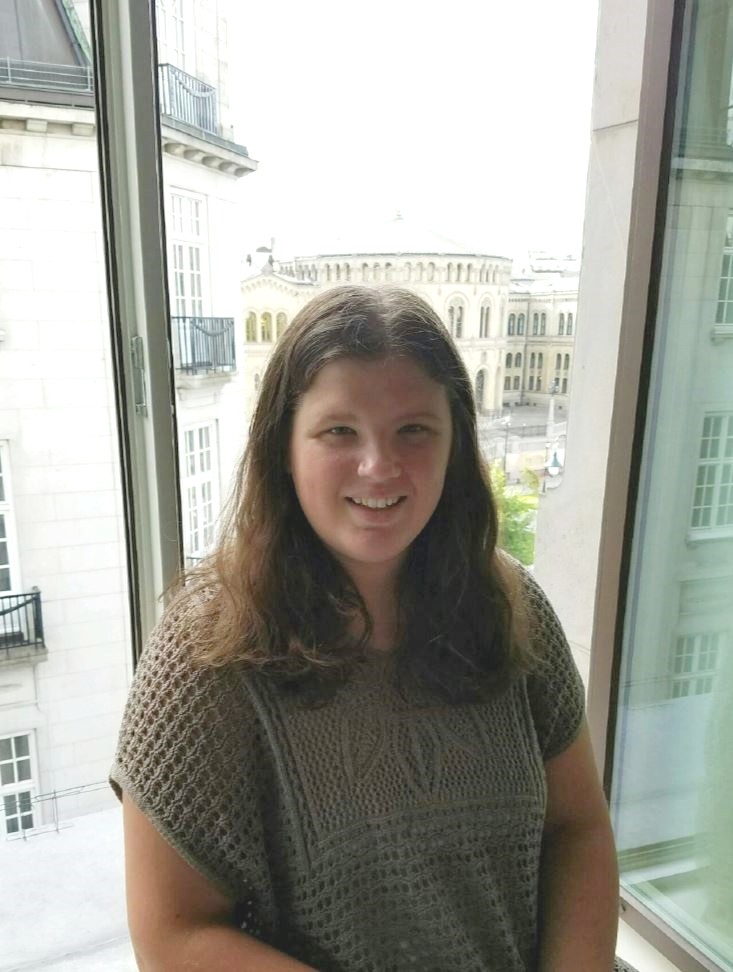An Unlikely Pairing
Research in neuroscience and finance prepares Alexandra Siwulec, C'19, W'19, for the future of her choice.
Even as a young child, Alexandra Siwulec was fascinated by the science of the human body and brain. She grew up with a premature love of ER, preferring the medical drama to standard fare like Sesame Street.
“For as long as I can remember, I wanted to attend medical school,” she says.
When Siwulec, C'19, W’19, arrived at Penn, she started on a pre-med track. At the same time, she branched out into other disciplines and quickly discovered an affinity for business, economics, and statistics.
Surprising herself, Siwulec began to imagine a different future—one where the sciences and economics might commingle. Fortunately, Siwulec didn’t have to choose because of the Vagelos Life Sciences and Management (LSM) program—an undergraduate dual-degree program administered jointly between Penn Arts & Sciences and the Wharton School.
The competitive LSM program provides graduates with a Bachelor of Science in economics and a Bachelor of Arts in a life science major. Staying true to her fascination with the workings of the human brain, Siwulec chose an interdisciplinary major focused on neuroscience: the biological basis of behavior (BBB). In BBB, students explore biological, psychological, computational, and clinical approaches to understand the nervous system as the basis of behavior. Honoring newly discovered interests, Siwulec also majored in economics with a concentration in finance.
“For students with interests in both the life sciences and economics, the LSM dual degree has huge benefits. It offers the flexibility to spend time and do internships in both areas to figure out what you really want to do in the future,” Siwulec explains.
As an LSM student, Siwulec didn’t have to wait long to do deep exploration into intriguing research questions in both neuroscience and finance. LSM students take part in two paid internships, one in scientific research and another in business or public policy.
The summer after her sophomore year, Siwulec did two summer internships in scientific research. In the first, she worked at the Max Planck Florida Institute for Neuroscience at a lab that aims to understand how genes associated with neuropsychiatric disorders, such as autism and schizophrenia, alter the development and function of brain circuits. Specifically, Siwulec helped with research on gene deletion and schizophrenia; she briefly worked with mice to see if deletion of the gene ERBB4 would affect their behavior in a maze setting.
“I did see some evidence of a change,” says Siwulec. “Those without the gene tended to be more fearful, not wanting to explore the maze and congregating in the middle, while those with the gene would explore.”
In the latter part of the summer, Siwulec traveled back north to Red Bank, New Jersey, to work with the Integrated Medicine Alliance. There, she helped explore the link between patients’ diet, exercise, and level of socialization with mental functions, to determine if lifestyle interventions are linked to cognitive decline and a risk of Alzheimer’s disease.
Siwulec created a survey that asked patients about diet, exercise, sleep, socialization, education, and religion. Then she administered the official screening for Alzheimer’s risk. After compiling, she analyzed the data to see if there were any relationships between lifestyle and mental functions.
“It’s impossible to control for all factors like age, past health, and ethnicity, but I did see some relationships,” she says. “I found that a diet high in Omega-3 appears to decrease Alzheimer’s risk and that those who live alone had a higher risk of developing the disease.”
The following summer, it was time to switch gears to finance and head to Boston, Massachusetts. As a summer analyst for Adage Capital Management, Siwulec analyzed 30 potential investment opportunities within the small- and mid-cap biotechnology and pharmaceutical space. She did primary research and reached out to experts and physicians to ascertain if a particular investment, like a business with a new drug, was sound. Ultimately, she created detailed financial models to help investors decide how valuable an investment may or may not be.
“It was really gratifying to make models and recommendations that were acted upon by people at the hedge fund,” says Siwulec.
In addition to an impressive research resume compiled through LSM, Siwulec has been a research assistant for Jennifer Prah Ruger, Amartya Sen Professor of Health Equity, Economics, and Policy at the School of Social Policy and Practice for almost four years, reviewing and editing manuscripts and writing publications about her research. She is a 2019 Dean’s Scholar, volunteers at a school for students with cerebral palsy, and co-founded Global Women Empowerment (GWE), a non-profit dedicated to improving women’s lives through healthcare, education, and self-sufficiency.
Starting in July, Siwulec will begin a job in private equity for Bain Capital. As an analyst—similar to her experience as an LSM student—Siwulec will explore multiple interests working within four different verticals: health care, consumers, industrials, and technology
Siwulec feels prepared for Bain and whatever comes next because of the LSM program. She recommends it to others. “Whichever future direction you choose, getting both degrees and the skills developed through LSM will make you a competitive applicant.”
In May, Siwulec will walk across the stage and accept two degrees. Even though she’s already signed a four-year contract with Bain Capital, her five-year plan is to apply to business school or—of course—medical school. Fortunately, she’s well prepared for either choice.



